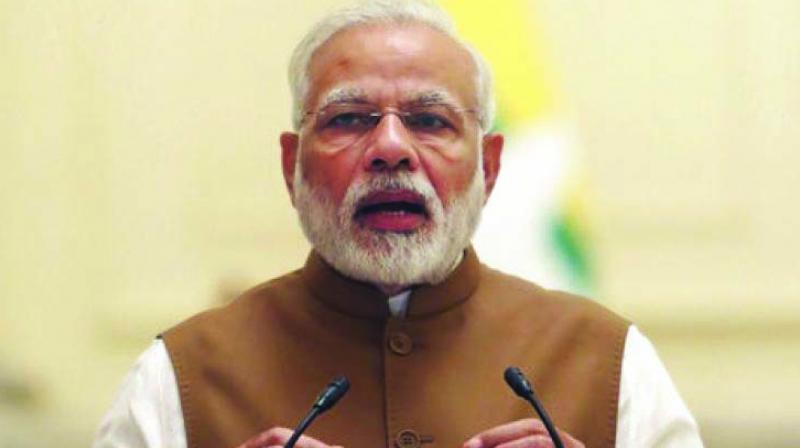US takes dialogue route to calm ties with India

A clear outcome of the interaction between Prime Minister Narendra Modi and US President Donald Trump on the sidelines of the G-20 meet at Osaka seems to be the easing up of worries in India-US relations, caused in particular by Mr Trump’s hectoring attitude on trade matters.
The anxiety gained special traction perhaps because the two leaders had not met one-on-one since the end of 2017. This time, the US President personally denigrated India as “tariff king”, and warned it to scale back fresh tariffs on 28 items (which hurts the US farm sector) that it imposed after the US prevented duty-free entry of Indian exports under the Generalised System of Preferences. But for all that, the Modi-Trump meeting at Osaka went off without a hitch, with Mr Modi explaining that India had imposed additional tariffs only after the US removed GSP benefits for Indian goods.
The US leader’s press conference on Saturday, which comprehended a wide range of issues, also suggests that Mr Trump, at least for now, is not going to push through with the hard line on trade with China, raising cautious hope that the trade war between the world’s two biggest economies may be tapering off. Perhaps Mr Trump’s suddenly more relaxed attitude toward tariffs in relation to trade with India may also be read as a part of a wider design to scale back on using trade as a bullying weapon.
If that is indeed the case, international anxieties about a further drop in world GDP will ebb. Shortly approaching the final year of his first term, perhaps Mr Trump does not desire any negative fallout of trade wars to impact his own core domestic constituencies — such as farmers. The trade aspect between India and the US has been finessed by the principals agreeing to leave the difficulties to be negotiated between top officials of the two sides.
But no less heartening is the fact that India and the US both appear to realise that no single issue should be permitted to torpedo a very important relationship of the international system. After the Modi-Trump meeting, a White House readout said, “The leaders acknowledged the unprecedented breadth and depth of bilateral ties... The leaders affirmed that, as responsible democracies, a close partnership between the US and India is central to global peace and stability.”
This, in fact, is the crux of the matter. It is the recognition of this that seems to have stopped the US from making India's purchase of S-400 missiles from Russia a sticking point, though secretary of state Michael Pompeo did not fail to raise it in New Delhi a couple of days ago.

